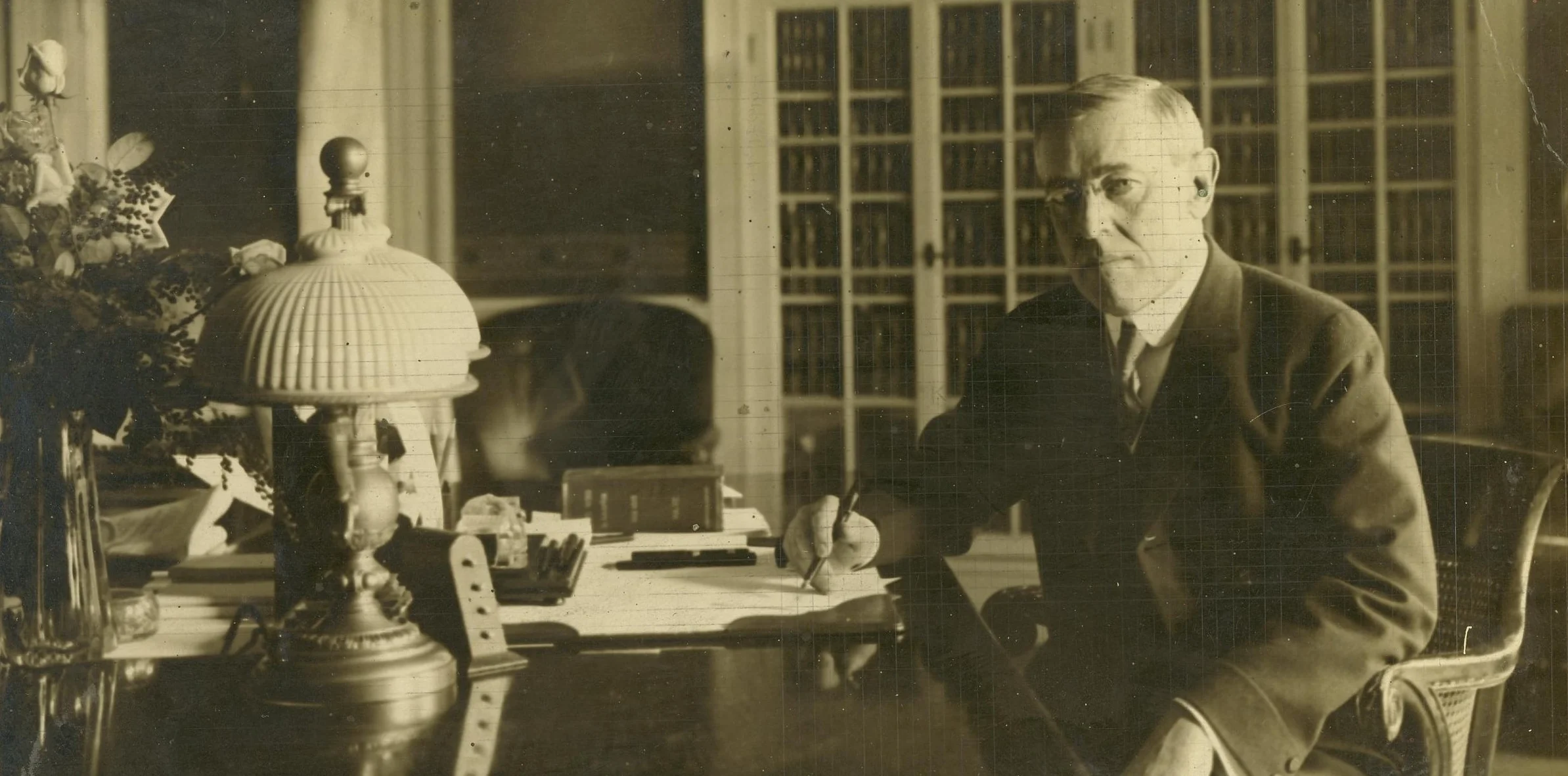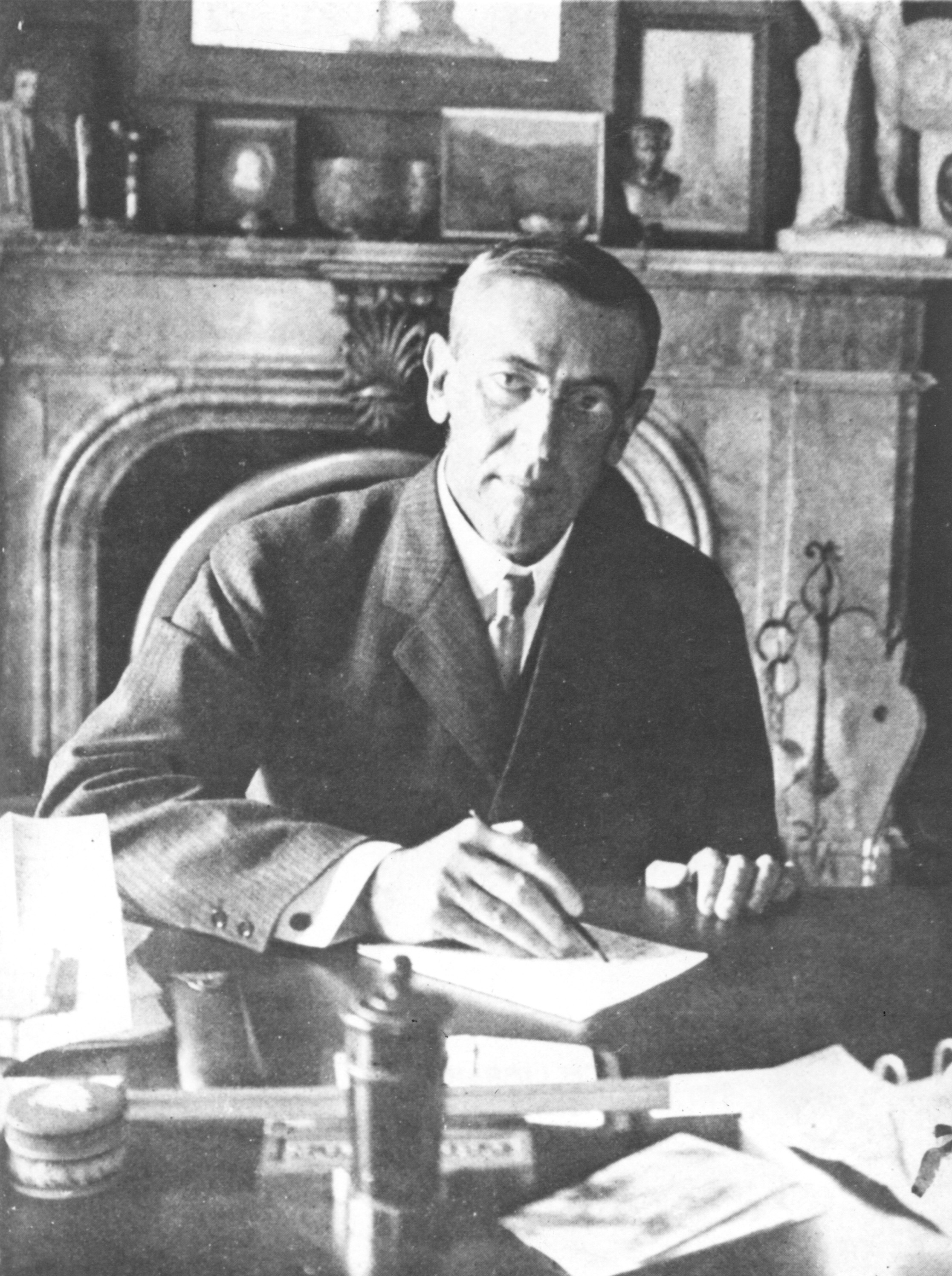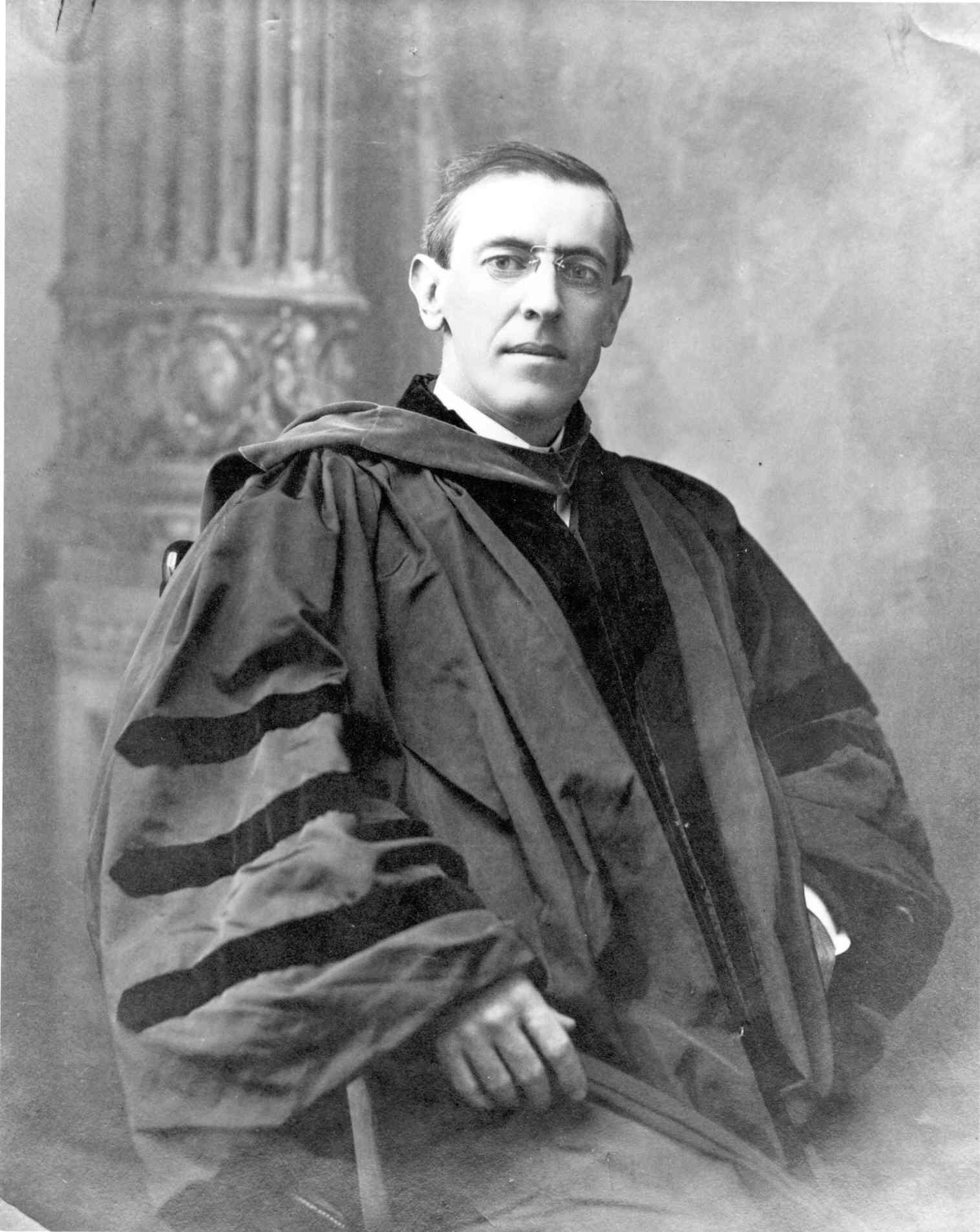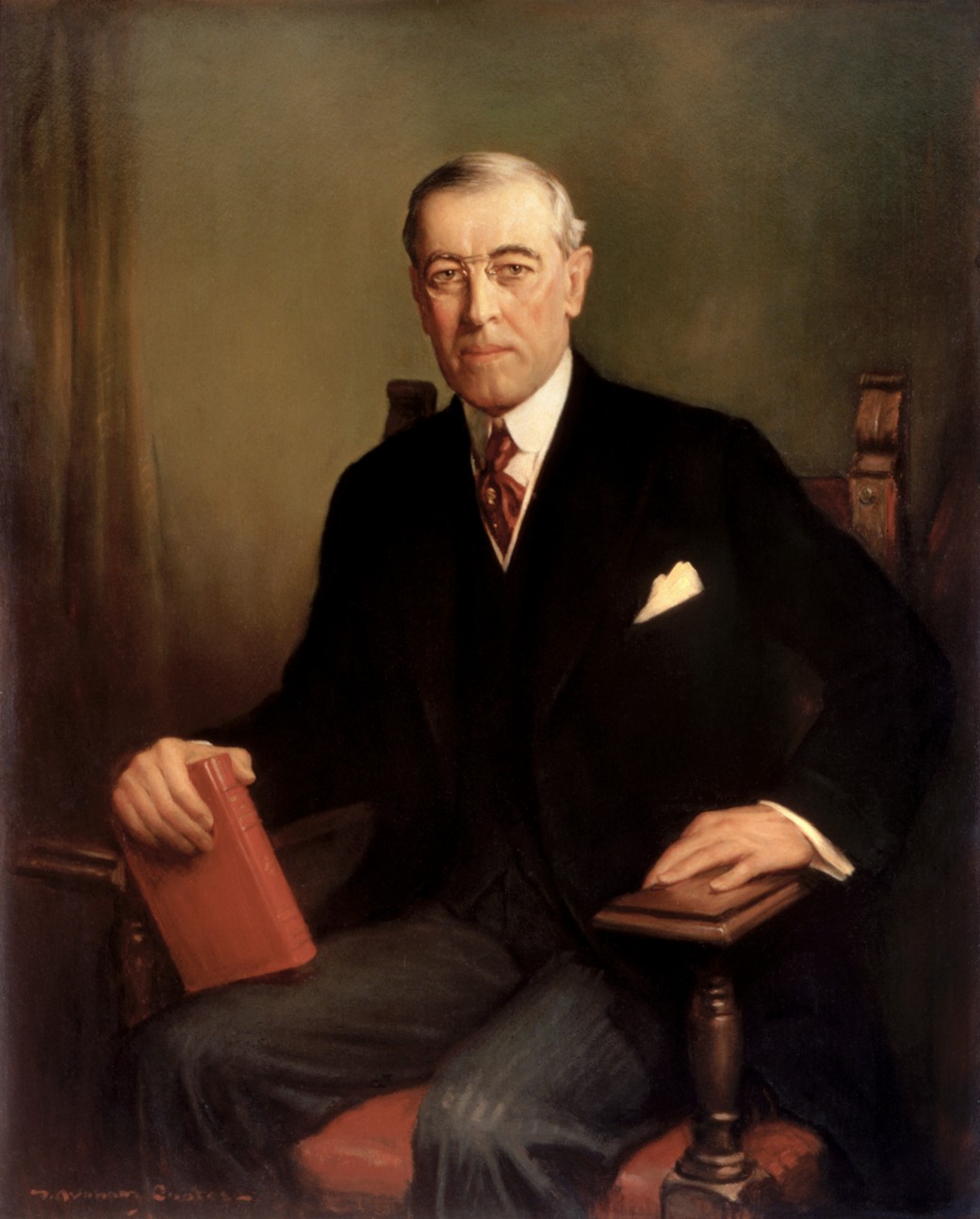Thomas Woodrow Wilson
Born: December 28, 1856
Died: February 3, 1924 (aged 67)
Thomas Woodrow Wilson was born 28 December 1856, in Staunton, Virginia. He was the third child, and first son of Reverend Joseph Ruggles Wilson and his wife, Janet “Jessie” Woodrow Wilson. Reverend Wilson was the minister of the Staunton Presbyterian Church. Then known as Tommy, Wilson moved with his family to Augusta, Georgia in 1858 when he father was called to another church. Wilson lived in Georgia during the Civil War and he saw firsthand the carnage of the war. Wilson later moved to Columbia South Carolina in his teens. Undoubtedly, Wilson’s childhood in the South affected his later beliefs toward war and race relations.
Wilson attended Davidson College for one year and later transferred to Princeton University, graduating with the class of 1879. He attended the University of Virginia Law School, but soon found that he hated practicing law. Wilson received his Ph.D. from Johns Hopkins University.
He married Ellen Axson, the daughter of another Presbyterian minister, in June 1885. The couple would have three daughters. After teaching at Bryn Mawr and at Wesleyan University, Wilson return to Princeton in 1890 as a professor. Wilson was immensely popular with students and fellow faculty and in 1902, he was named President of the institution. He remained at Princeton University until he was elected Governor of New Jersey in 1910.
Elected as President of the United States in November 1912, Wilson was inaugurated in March 1913. During Wilson’s first term in office, he was responsible for many social and economic reforms including the passage of the Federal Reserve Act, the Child Labor Reform Act, and legislation that supported unions to ensure fair treatment of working Americans. It was also during this time that Wilson allowed Jim Crow laws to be put into place in Washington D.C., and allowed the secretary of the treasury and the postmaster general to segregate their departments.
After his wife Ellen succumbed to Bright’s Disease in July 1914, Wilson fell into a deep depression. He was soon introduced to his second wife, a widow named Edith Bolling Galt, whom he quietly married in December 1915. In 1916, Wilson was elected to a second term in office, running on the slogan “He Kept us Out of War”. By April 1917, however, the United States of America declared war on Germany and entered what was then known as the Great War.
Wilson may best remembered for his leadership during World War I, and his attempt to establish the League of Nations. At the Paris Peace Conference, Wilson proposed “Fourteen Points” as the basis for the peace treaty. The final Treaty of Versailles included many of Wilson’s ideas, but the United States Congress voted down the Treaty, and the United States never joined the League of Nations. While touring the country in 1919 to boost public support for the League, Wilson fell ill from exhaustion and suffered a stroke from which he never fully recovered.
Wilson originally believed that a woman’s right to vote was a state issue. Originally, President Wilson’s support for women’s suffrage was lukewarm at best, but he later lent his support to women’s suffragists. In a 1918 speech before the Congress, Wilson – for the first time in his time in office – publicly endorsed women’s rights to vote. Realizing the vitality of women during the First World War, President Wilson asked Congress, “We have made partners of the women in this war… Shall we admit them only to a partnership of suffering and sacrifice and toil and not to a partnership of privilege and right?”
After leaving office in 1921, Wilson and his wife moved to a private residence in northwest Washington, D.C. He died there at the age of 67 on 3 February 1924, and is buried in the Washington National Cathedral.
• Proud Virginian
• President
• Peacemaker







